Apply now to join our next cohort of Community Science Fellows and Community Leads!
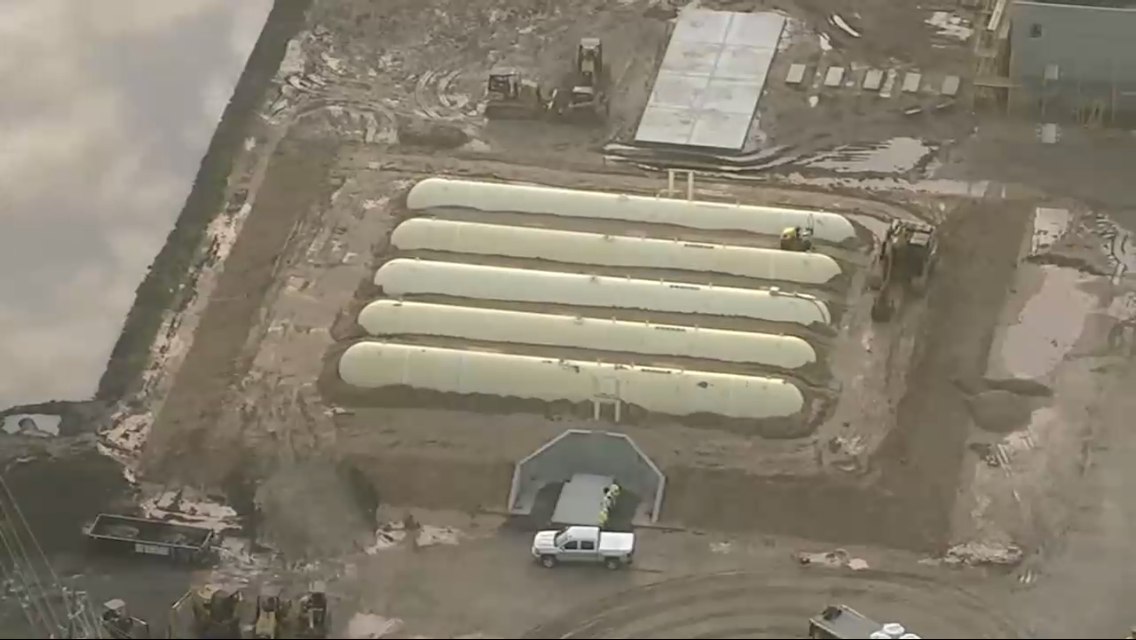
“It’s business over bodies” (Marilyn Rayon, Southwest Crossing Community Resident and Thriving Earth Exchange Co-Leader)
The Problem
The Southwest Crossing community of Houston, TX maintains that siting facilities for the storage of 300,000 gallons of liquified petroleum gas (LPG-propane), as well as its vaporization and transport, within 500 feet to residences constitutes a grave health and safety risk.
Proposed Solution
To learn more, we are working with Thriving Earth Exchange to conduct several studies using methods consistent with principles of environmental justice (UCC 1991) including: a National Environmental Policy Act Impacts Analysis and a Probabilistic Risk Assessment & Offsite Consequence Analysis.
Community Benefits
Reports and recommendations from these studies will inform us of the potential risks we may face as well as steps we can take if there is an accident at the storage facility.
Our findings will also be used in the ongoing fight for environmental justice by building a strong case for potential legal actions and they will be shared with similar neighborhoods across the city and in the State of Texas.
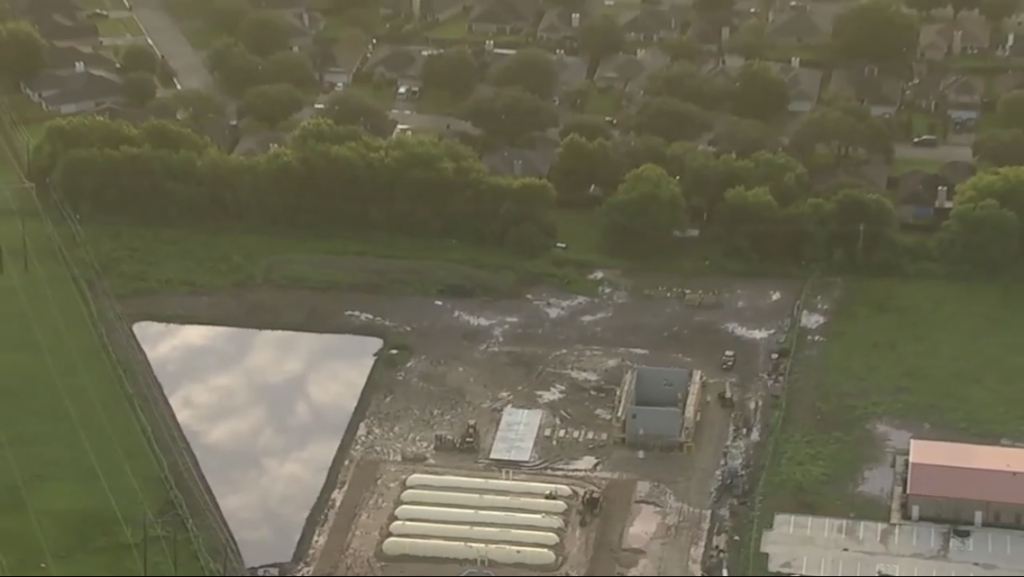
About the Community
The Southwest Crossing Community Initiative (SWC) represents a residential neighborhood on the southwest side of Houston, TX. There are 402 single family properties, 10 schools, 8 houses of worship, and approximately 2,000 residents. It has thrived since the 1980s and continues to provide a beautiful and safe environment for the multiple generations that call it home. Many of our members have worked hard to pay off their mortgages and are enjoying their retirement years. Our community is diverse and has majority black and brown residents.
Thriving Earth Exchange Partnership
We are working with Thriving Earth to gather information sorely needed by residents. We want to launch a comprehensive study of the risks and impacts our community is facing as well as to learn how to mitigate those risks and prepare for a disaster.
History of SWC Engagement with the Problem
Since 2021, when CenterPoint Energy notified us of the Lantana Point Reserve facility siting in SWC within 500 feet of SWC homes, we met local and State elected officials, CenterPoint representatives, and Railroad Commission of Texas representatives. We appealed to the Texas Sunset Advisory Commission to shutter and remove the facility as well as the Texas Commission on Environmental Quality (TCEQ) officials who issue permits for these facilities. We also developed a community website and a YouTube Channel; started an online petition and a funding campaign; and we continue to be featured on local news channels and websites.
In 2023, with the help of State Senator Borris L. Miles and State Representative Alma Allen, we submitted five proposals to the 88th Texas Legislature calling for changes in notification rules, safety requirements, proximity to hazardous materials rules, zoning laws, and state notification rules.
Aims
We will use the findings from three studies to:
Activities
We plan to work with scientists/specialists and conduct several studies including:
In the future we are interested in conducting additional studies including:
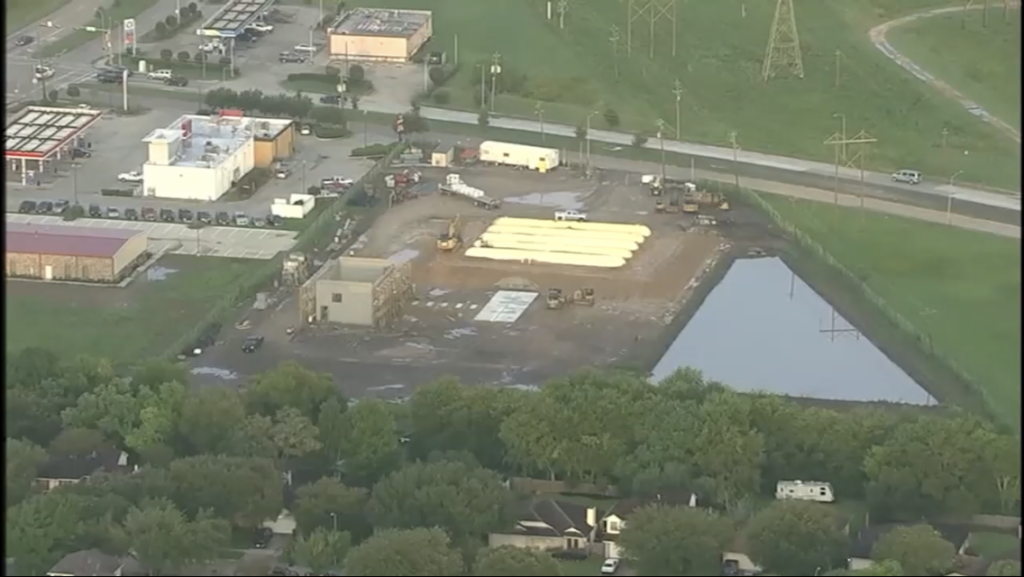
Actors
In addition to the Community co-Leads listed below, a cohort of 4-6 community residents will work in collaboration with scientists/specialists during the project period. Target Audiences include:
Deliverables
Outcomes
Completion Date: See scientist/specialist descriptions below. The entire project will be completed by Fall 2024.
Anticipated Community Benefits
Impact
While the overall aims of this study are to identify risks to the community as well as to explore what is necessary to keep community members as safe as possible in worst case scenarios, our top priority is to force the closure and relocation of Lantana Point. Furthermore, we are working with our state representatives to change Texas state law to prevent these types of dangerous facilities from being built within the range of residents and workers in the future.

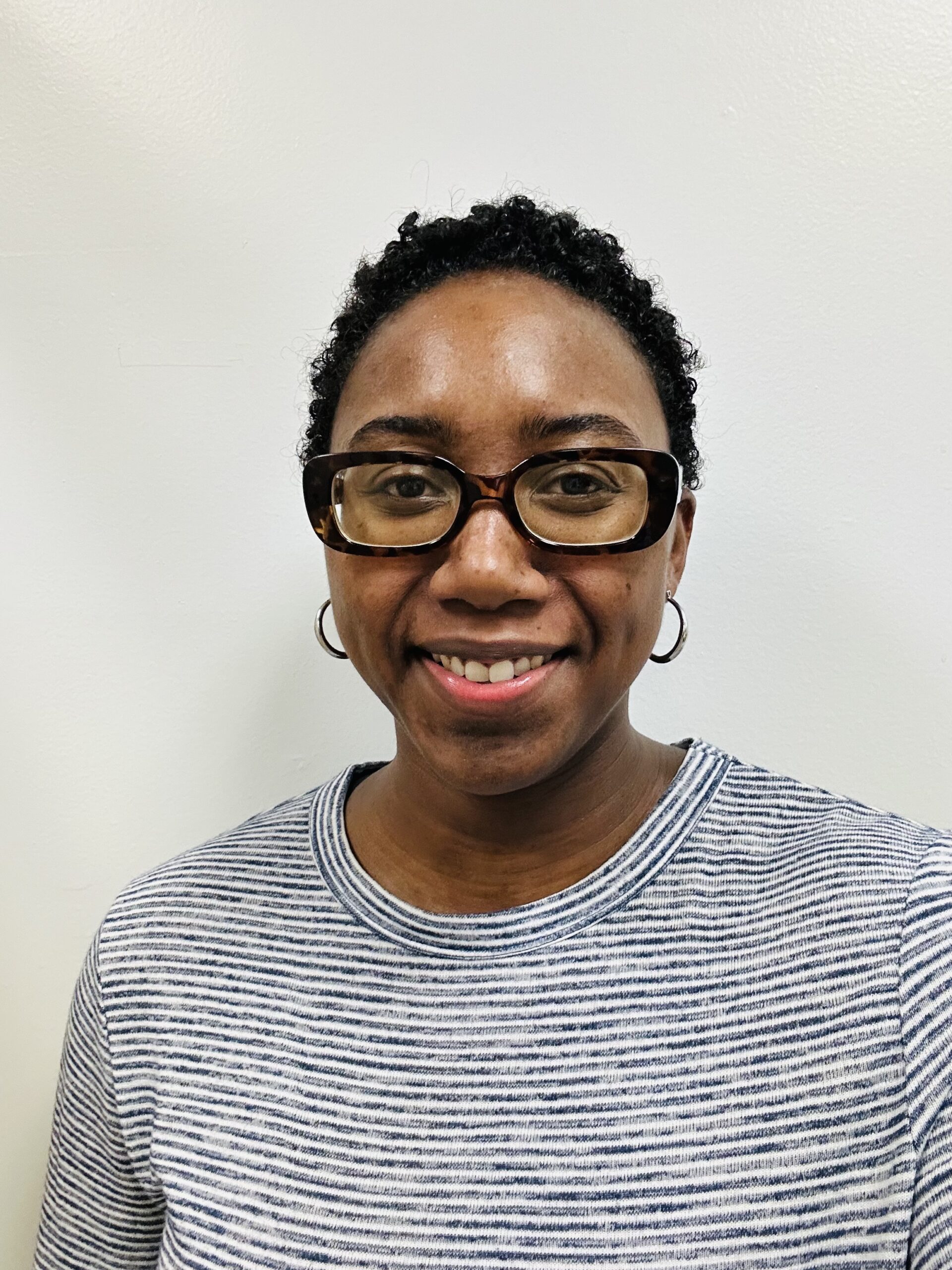
Brittney Stredic
I am a native Houstonian and have been a proud resident of the Southwest Crossing Community for over 15 years. I’ve been blessed to grow up in this community and with my neighbors who are family to me.
My passion is within the creative arts and expression. My greatest joy comes when I can help people express themselves and navigate through challenges with an outlook of hope and resilience leading to learning, growth and fulfillment. My work comprises audio – visual technology, production, graphics and arts, print media, writing and sales.
In 2012, I studied graphic design at Texas State University – San Marcos, and in 2016 graduated with a Bachelors of Science in Advertising and Mass Communication. In 2021, I began my Masters of Clinical Mental Health Counseling at the University of Houston – Clear Lake.
My goal is to see that my community remains protected and safe from the environmentally racist and hazardous propane storage facility that has been thrust upon us. By fighting this fight and seeing it through to the win, I believe my family, my neighbors, our children and our community will have their peace restored knowing that God fights for us and is on our side.
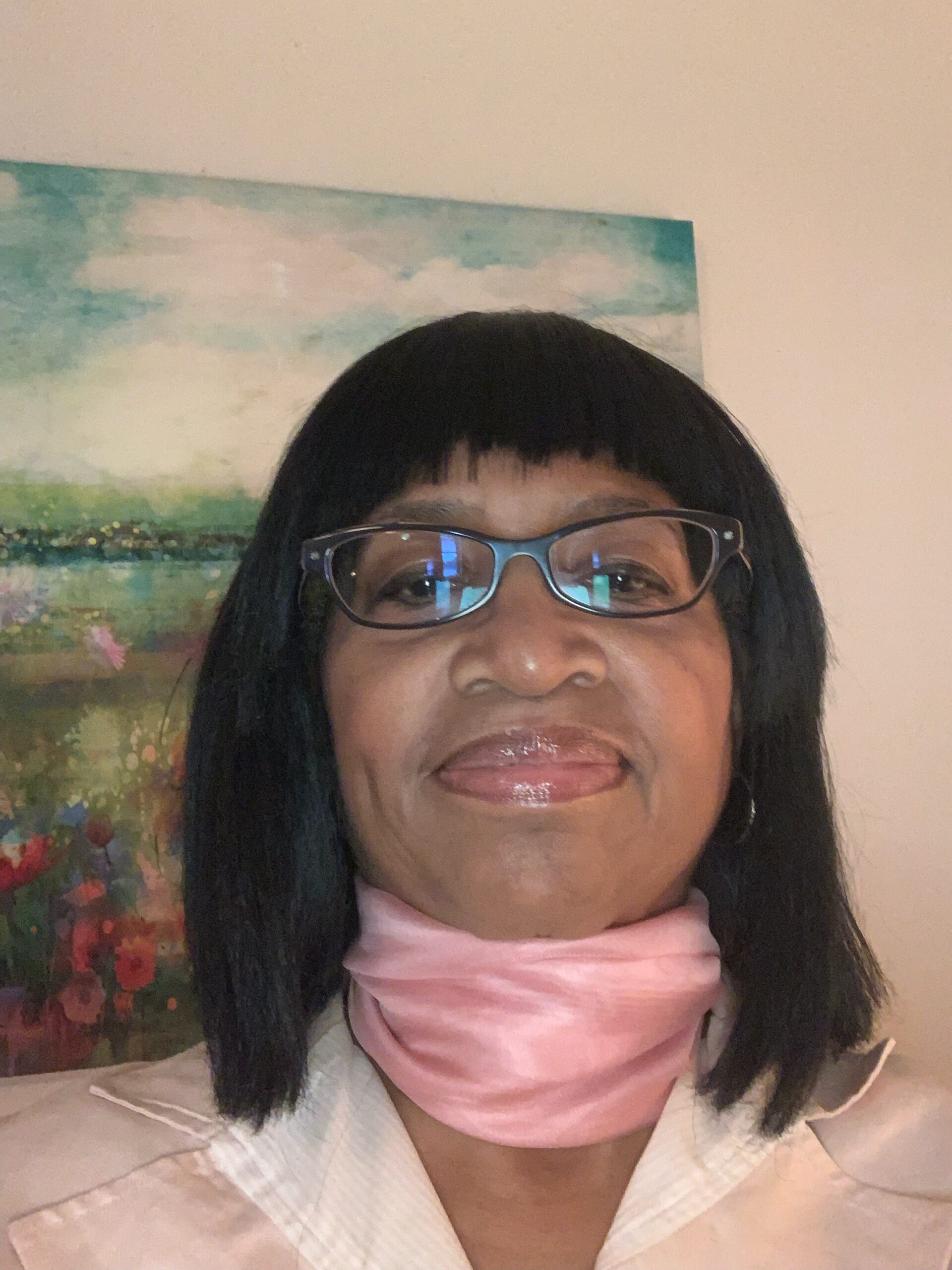
Marilyn Rayon
Before retiring from FEDEX, I worked as a Sr Agent in Customer Service Escalation Resolution. Clients experiencing reoccurring issues were transferred to the Escalation desk. My job was to resolve the problem in a timely manner.
I’m originally from Michigan City, Indiana but Houston has been home for 36 years. In 1979 I earned my Bachelors in Marketing from Davenport University (formerly Detroit College of Business). My husband (Leo Sr) and I moved to Southwest Crossing 32 years ago. We love our community. My hobbies are traveling, cooking and teaching Sunday School at my Church.
Several years ago, CenterPoint purchased land in our Neighborhood. In May 2021 they began construction of a 300,000 gallon liquid propane gas tank facility here. As a result, in June 2021 we founded Southwest Crossing Community Initiative (SCCI); a grassroots organization. Our goal is the relocation of this dangerous Facility from our area. We fear the Tanks could experience a gas leak, fire, terrorist attack, stray bullet or projectile puncture, lightning strike, etc. Loss of life would be catastrophic. Daily I email political leaders, write to government agencies, etc. requesting their help. We are fighting for the return of safety to our homes.
Logan Gerber-Chavez (she/her)
Dr. Logan Gerber-Chavez is an emergency management planning expert specializing in compound hazard planning and work on climate justice and environmental justice in emergency management. She holds a Ph.D. in disaster science and management from the University of Delaware’s Biden School of Public Policy and Administration and M.S. and B.S. degrees in geography from the University of Oklahoma and Texas A&M University, respectively.
She has worked as an advisor to the U.S. Geological Survey on emergency planning for the national parks system. She has conducted research on projects over a variety of topics, including international climate policy, green roofing technology, climatology and micrometeorology, business recovery in disasters, hurricane evacuation decision-making, maternal health and infant feeding in disasters, international natech disaster management, wetlands regulations for floodplain management, flood buyout programs, and various COVID-19 related projects. Dr. Gerber-Chavez has taught courses in human and physical geography and GIS and has an award-winning collection of disaster and climate-related fiction and nonfiction books. She is currently working on research projects on equity in government funding for emergency management, all-hazard planning for remote locations, floodplain development, and climate justice.
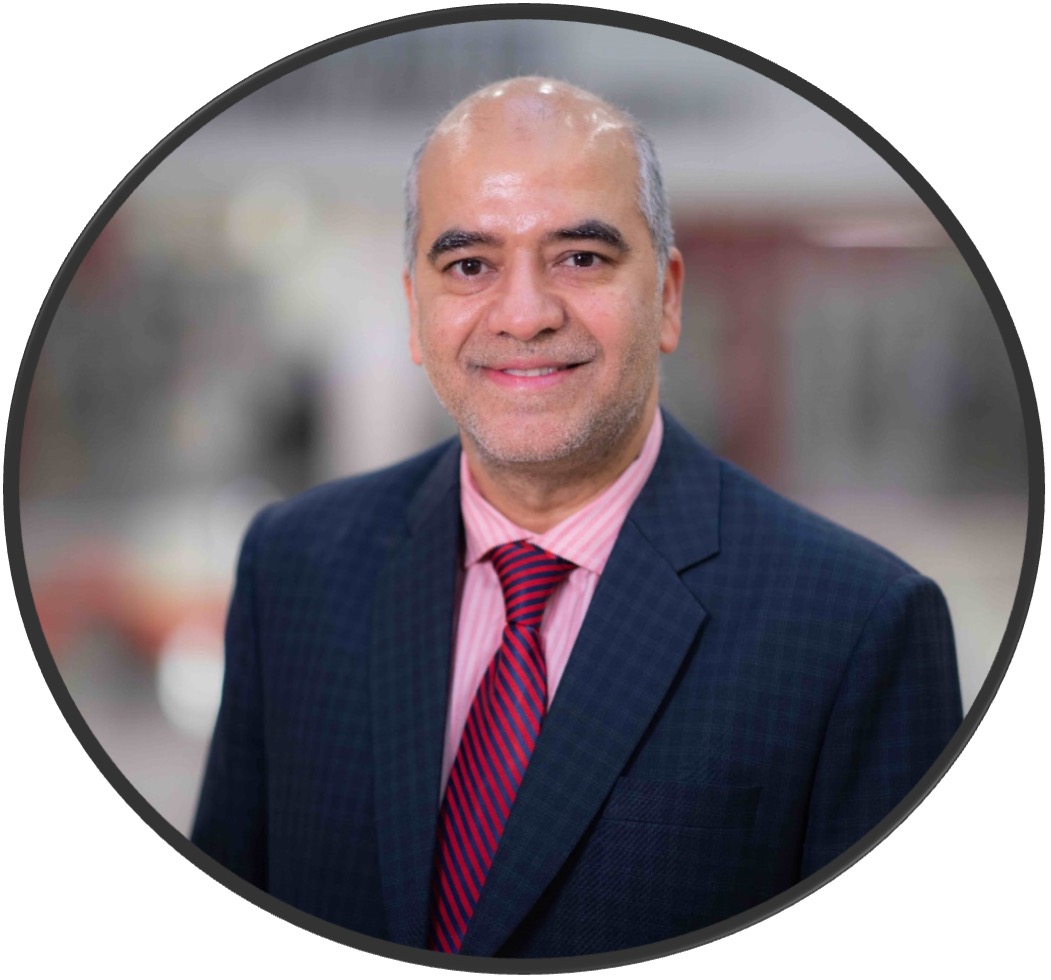
Dr. Faisal Khan
Dr. Faisal Khan is the Mike O’Connor II Chair Professor and Director of Mary Kay O’Connor Process Safety Center at Texas A&M University. He is also the Director of Ocean Energy Safety Institute (OESI), a US Department of Energy and US Department of Interior funded applied R&D initiative. Dr. Khan is a former Professor and Canada Research Chair (Tier I) of Offshore Safety and Risk Engineering at Memorial University of Newfoundland, Canada. He founded the Centre for Risk Integrity and Safety and Engineering (C-RISE) at Memorial University, Newfoundland and Labrador, Canada. His research interests include process safety, system safety and security, extreme event modelling, asset integrity and risk engineering. He is a Fellow of the Canada Academy of Engineers. He has authored over 500 research articles in peer-reviewed journals and mentored 85 PhDs and 85 master students. He is Editor-in-Chief of the Journal of Process Safety & Environmental Protection (Elsevier) and Safety in Harsh Environments (Nature Springer).
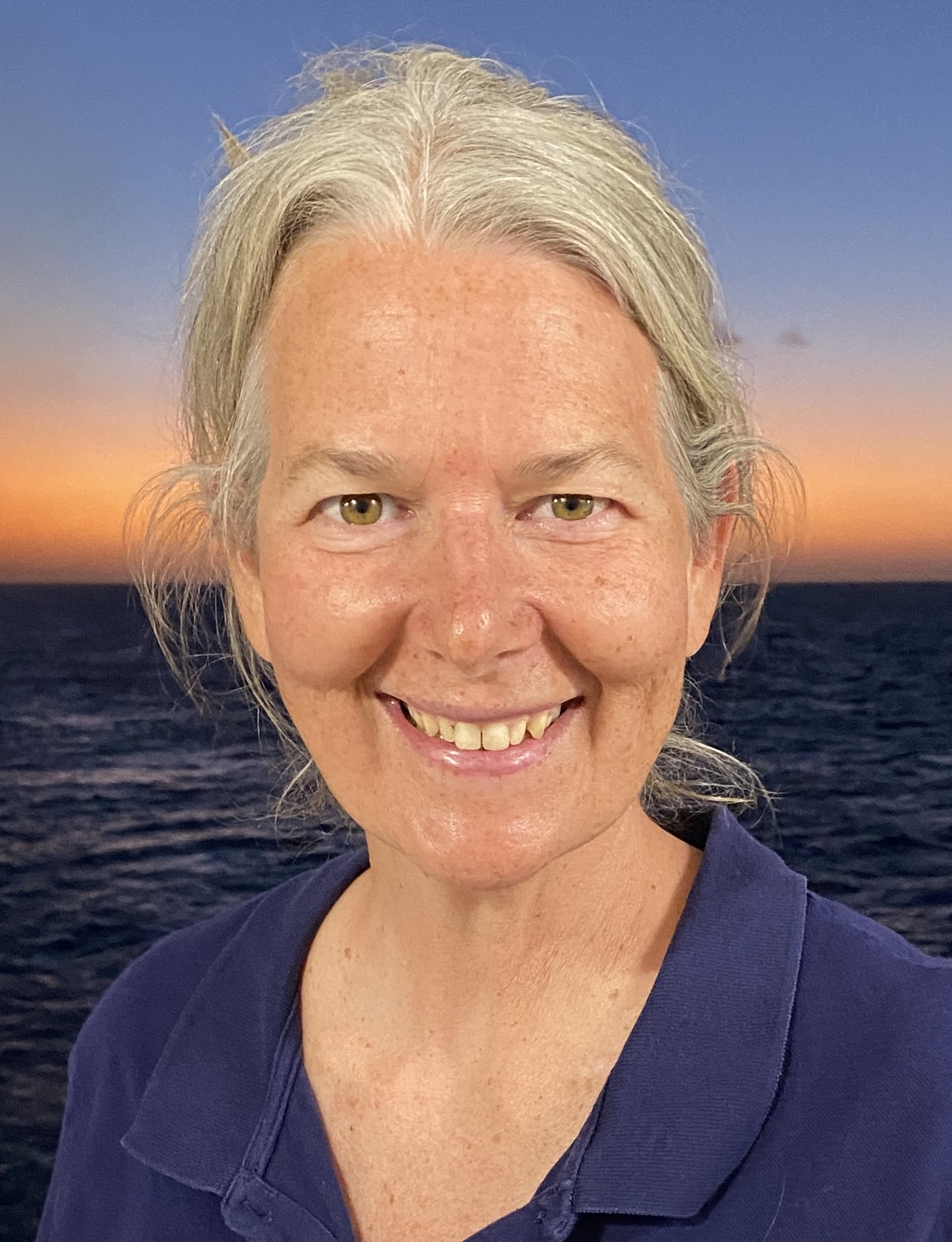
Dr. Susan Kirch (she/her)
I am a science educator, molecular biologist and (now) an independent scholar. I recently retired from New York University where I was an associate professor in the Department of Teaching and Learning. I am new to Community Science and excited to be working with Thriving Earth Exchange and Southwest Crossing Community Initiative. I enjoy co-authoring research projects and am interested in using my experiences to assist community members further develop catalytic and empowering projects that lead to new knowledge and viable solutions. In my work as a science educator, I taught undergraduate-level biology, microbiology, environmental science and human health and disease in the Science in Our Lives program I designed for future teachers; I prepared future teachers for teaching elementary school science and for conducting research on teaching and learning; and I led the science education specialization in the Teaching and Learning Doctoral program.
Bullard Center for Environmental & Climate Justice
The Bullard Center for Environmental and Climate Justice at Texas Southern University addresses longstanding issues of systemic inequality and structural racism that cause disproportionate pain, suffering and death in Black and other people of color communities. The Center is directed by environmental justice scholar Dr. Robert D. Bullard and is housed in the Barbara Jordan-Mickey Leland School of Public Affairs. It strives to be a leading force for transformative environmental, climate and racial justice using rigorous science, community-driven research, policy, civic engagement programming, and effective advocacy.
(c) 2024 Thriving Earth Exchange